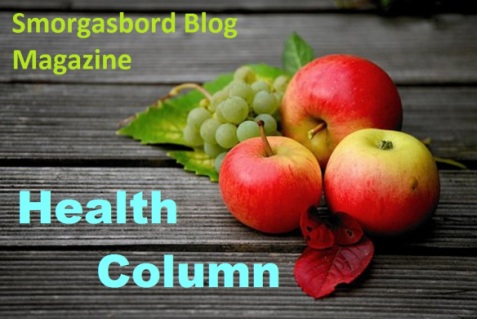
It is two years since I posted this series on the major organs of the body and how they work and I am always looking for research updates to share with you. Dementia, Alzheimer’s Disease and other related conditions are rarely out of the headlines and it is probably everyone’s worst fear. There is a genetic link to some forms of dementia,but it is not as common as lifestyle related deterioration of the brain. Even though we are living longer, dementia is not an automatic progression and understanding how this amazing organ works and what it requires to be health, is vital.
Part three: Lowering the risk of dementia
Before I share the foods that can contribute to brain health, I also wanted to offer some areas that you might make a note of if you are a carer of an elderly family member.
- As we age and get into our 80s in particular, there is usually a decrease in our exercise levels. It seems that this also coincides with a decrease in appetite that results in a reduction in the level of nutrients we are taking in.
- Most people over 80 are likely to have also lost a large number of teeth and although most will have dentures this will impact the ability to chew foods. This results in a reliance on soft foods and often excludes proteins such as beef, lamb, etc that contain higher amounts of vital B-vitamins and iron.
- Our taste buds too will become dulled and so food can be tasteless unless lots of salt or sugar are added. And it is easier to eat a dunked biscuit or a piece of cake than to eat a wholegrain sandwich made with salad and chicken. The entire digestive system will also be less effective and this means that any food consumed may not be processed in the gut as it should be, which naturally leads to malnutrition.
- I recommend making high nutritionally dense foods that are easy to eat but still provide essential vitamins and minerals.. Soups made with the stock made from chicken or beef bones.. 5 or 6 different vegetables such as carrots, spinach, celery, sweet potato, onions, mushrooms and broccoli and then blitzed and then diluted with some whole fat milk to make a rich and creamy soup. Served with an egg sandwich in soft wholegrain bread, butter. You get the idea.
- Apart from making sure that food is as nutritionally dense as possible, I also recommend a high quality vitamin and mineral supplement. This can be a problem because with a less efficient digestive system, large tablets will go right through without stopping to release their contents. Also they need to contain some specific nutrients such as Vitamin D.. B-Vitamins, particularly B12 as well as calcium and iron etc. There are some liquid options which are excellent and also some chewable soft jells which are more digestible.
- If your elderly relative begins to show signs of forgetfulness and confusion, do get them checked for a urinary tract infection. It is very common in the elderly and has the same symptoms. This has led to a great many misdiagnosis of dementia and should always be asked for. To counteract this.. place a hand sanitizer in the bathroom for use before going to the toilet as well as afterwards. Also a glass of cranberry juice with breakfast may help keep the urinary tract clear of bacteria.
- This leads me on to dehydration. This is extremely common amongst the elderly who are inactive, are in a warm environment and who rely on a cup of tea three times a day for their liquid intake. They usually also refuse additional liquid, particularly close to bedtime because of the effort of getting up in the night. Many of the symptoms of dementia are the same as dehydration. This can be a tough one but I suggest that as well as a juice with breakfast and a cup of tea, that you dilute a 500 ml bottle of water with some freshly pressed apple juice with a sports cap so it is easy to drink and put it by their chair. You can refill after lunch and make sure that they drink that before their final cup of tea after supper. That should prevent dehydration and also having to get up too much in the night.
- Do check the side effects listed for any medication that they are taking as some can result in confusion.
- Whenever you can encourage them to get up and move around the house or the garden, twice a day at the minimum. And if you can get them out in the fresh air, even in a wheelchair it will benefit them in many ways, including stimulation.
Some articles on the connection between food and dementia
One of the leading causes of most disease is inflammation in the body, and that includes the brain. Some spices help reduce inflammation and are well worth including in meals on a daily basis.. a small teaspoonful in main meals or as a tea which is how I prefer to ingest it.
Much Lower Rate of Alzheimer’s Disease in India
The rate of AD in India is about 4.4-fold less than that of the United States. While there are probably many factors that account for the difference, the fact that curcumin is consumed daily in curry spice from a very early age can’t be overlooked. Even though the daily amount of actual curcumin from turmeric is smaller in that case, the cumulative effect is considerable.
So in recent years, researchers have been looking at the effects of curcumin extracts – which have much higher levels of the compound than dietary turmeric – for treating AD.2,3
Curcumin Stops Brain-Harming Inflammation
The connection between inflammation and Alzheimer’s can’t be overstated. Neurons are especially susceptible to inflammation or other injury, and the release of inflammatory compounds in the body can be neurotoxic. This includes tumor necrosis factor-alpha (TNF-a), interleukin-1-beta (IL-1β), free radicals, including nitric oxide (NO) and others. Curcumin has a great potential for a therapeutic role because it works through multiple inflammatory pathways: Curcumin for Health
Inflammation is part of the body’s immune response. It alerts your body to a wound or injury, like when your ankle will start to throb and swell after a sprain, so your immune system can fix it. It’s not just external injuries that cause inflammation, however. Things like a lack of sleep, excessive stress, genetics, and—what might be worst of all—the wrong diet can all contribute to inflammation.
By “wrong diet,” we’re talking about the typical American diet which is full of inflammation-inducing foods. Think: fried foods, refined flours and sugars, hormone- and antibiotic-laden animal products, synthetic sweeteners, and artificial food additives. So if you’re constantly noshing on these items, your body will begin to transition into a state of chronic inflammation. Top anti-inflammatory foods: Eat This anti-inflammatory
Shopping list for the Brain and its support systems
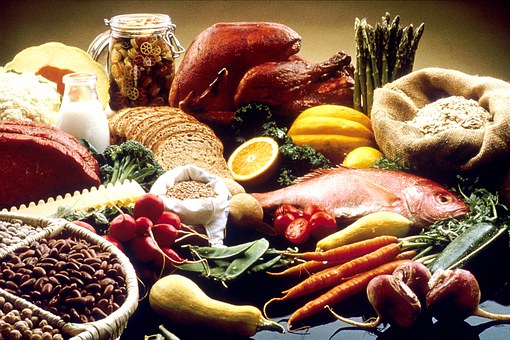
The first key element to eating for brain health is to omit industrially processed foods that contain harmful toxins and additives that have zero nutritional benefit and effectively ’empty’ calories. They might supply sugar and trans fats and look appetizing on a plate, but the brain will not recognize them as anything it can process. Processed foods Vs. Industrially manufactured foods
If you eat plenty of fresh vegetables, fruit, some moderate whole grains, nuts and seeds, good quality meats and cold water fish that have not been farmed, you are doing a great job.
For the brain to function efficiently it needs other systems in the body to be healthy.
The immune system is the barrier between the external world and all its contaminates and the brain. So your first line of defence is to keep that fed with the nutrients needed to produce all the various types of blood cells needed to repel opportunistic pathogens.
The digestive system needs to be in tip top condition so that food that is eaten is processed effectively so that the nutrients can be passed into the bloodstream and up to the brain.
The respiratory system needs to be maintained and giving up smoking and taking in clean fresh oxygen is essential… without that oxygen, carried by the blood, your brain with slowly die.
There are some key nutritional elements for brain health that will be supplied by the following list including B-Vitamins, Vitamin C, Vitamin D, Vitamin E, Essential Fatty Acids, Amino Acids, Magnesium, Iron, and Zinc.
You can find out how to incorporate foods high in specific nutrients in this series: https://smorgasbordinvitation.wordpress.com/cook-from-scratch-to-avoid-nutritional-deficiency-with-sally-cronin-and-carol-taylor/
Shopping List for the brain and your other major organs providing the basic nutritional requirement for the body.
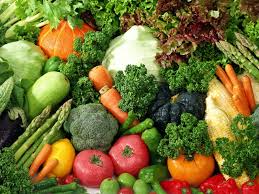
Vegetables – carrots, red peppers, broccoli, spinach, cauliflower, corn on the cob- any dark cabbage or Brussel sprouts, onions, mushrooms, tomatoes, watercress, dark lettuce leaves, cucumbers, celery, avocados and potatoes. (any other fresh seasonal produce you enjoy) At least five or six portions a day – use a cupped handful as an estimated portion size.
Lower Fructose Fruit – Bananas, kiwi, strawberries and any dark berries that are reasonably priced – try frozen. Enjoy all fruit in season at least three portions a day.
Hot lemon and water first thing in the morning will not only give you a Vitamin C hit, start your digestive process off but will also help with sugar cravings.
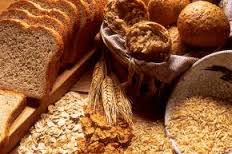
Wholegrains – brown rice- wholegrain bread – whole wheat pasta – weetabix – shredded wheat – porridge oats.Please do not buy sugar or chocolate covered cereals – more sugar than goodness. Carbohydrates are an important food group. However, as we get older and less active you really only need a large spoonful of rice or potatoes on a daily basis. if you suffer from a Candida overgrowth be aware that it may not be the yeast in bread that causes a problem but the sugar or its substitute.
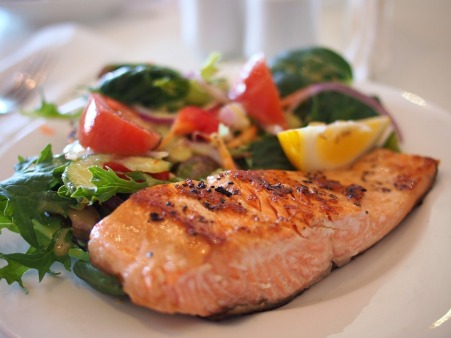
Fish – Salmon fresh (sea caught not farmed) and better quality tinned Salmon. Cod – haddock (again frozen can be a good option) any white fish on offer – shellfish once a week such as mussels. Tinned sardines, Tuna and herrings – great for lighter meals. (any fish that is available fresh not from farmed sources)
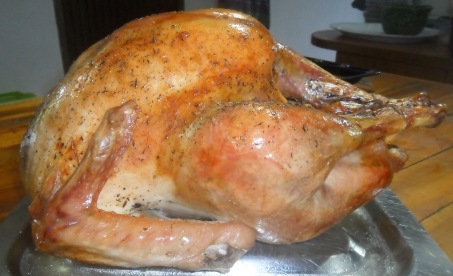
Meat and poultry – chicken or turkey – lamb, beef and pork. Do buy high quality, organic if it is reasonably priced but you will find that most supermarkets stock local meats and poultry and will state if they are from free range sources. The best source of nutrients is grass fed animals and this includes eggs and dairy.. Our requirement for Vitamin K2 is not met by grain fed animals.
Home cooked lean ham for sandwiches is very tasty but cheap sliced ham can contain too much additives. By an unsmoked ham joint from the butcher or supermarket as it will work out cheaper than buying sliced ham already prepared. To remove excess salt bring to the boil and simmer for half an hour, drain and add fresh water to the pan and bring to the boil for the rest of the cooking time.
Venison is a high quality protein if you enjoy it. Liver provides a wonderful array of nutrients served with onions and vegetables is delicious.
Tofu for vegetarians has become more accessible and can be used by non vegetarians once a week to provide the other benefits of soya it offers. Bacon once a week is fine but do bear in mind that most processed meats contain a lot of salt.
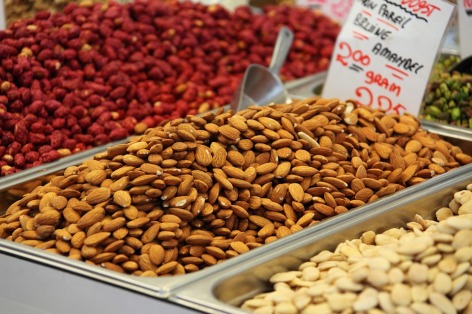
Nuts and seeds – to put on your cereal in the mornings or as snacks – check prices out in your health food shop as well as supermarket. Almonds, Brazil nuts, pumpkin seeds, flaxseeds, walnuts.

Dairy and Eggs– Milk, butter and cheese (better to have the real stuff than whipped margarine) – organic yoghurt. Free Range Eggs – have at least three or four a week.
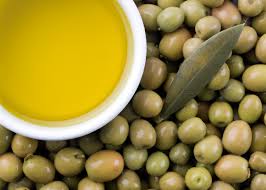
Oils – Extra virgin Olive Oil (least processed) – great drizzled on vegetables with some seasoning and also eaten the Spanish way with balsamic vinegar on salads and also drizzled over toasted fresh bread. If you do not like the taste of Olive Oil then use Sunflower oil – do not use the light version of any oil as it has been processed heavily – use the good stuff. You can also use coconut oil for cooking and also for use on salads.
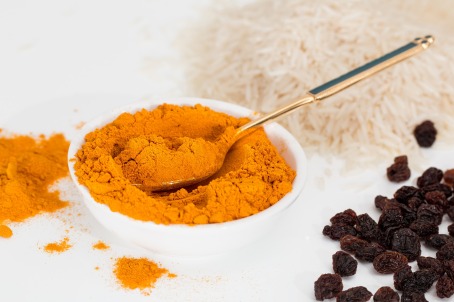
Herbs and Spices – Turmeric (curcumin) with black pepper for better absorption. Sage, Ginko Biloba (Chinese have used in the treatment of brain disorders for thousands of years), Ginger anti-inflammatory.

Honey and extras –You really do need to avoid sugars refined and in cakes, sweets and biscuits but honey is a sweetener that the body has been utilising since the first time we found a bee hive and a teaspoon in your porridge is okay. Try and find a local honey to you. Dark chocolate – over 70% a one or two squares per day particularly with a lovely cup of Americano coffee is a delicious way to get your antioxidants.
Sauces – If you buy your sauces in jars and packets they will have a great many more ingredients than you bargained for. One of the worst is sugar or its substitutes. The greatest cooking skill you can develop is to be able to make a wide variety of sauces from scratch. If you do this you will be not only using fresh produce with its nutritional punch but also taking hundreds of pounds of sugar out of your diet over a lifetime.
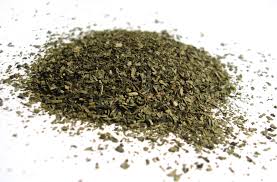
Fluids– Green Tea and Black Tea with antioxidants and drink two to three cups a day. and other herbal teas, tap and mineral water. If you enjoy coffee then one or two cups a day of good quality ground or the more expensive brands of freeze dried instant coffee. Try hot water with sliced lemon first thing in the morning and get some Vitamin C.
Good quality alcohol in moderation and it is better to have one glass a day than binge at the weekend. Your liver can handle that far better.
Depending on the climate and altitude at which you live, you will need to experiment to find out how much fluid you need. If you have very low humidity you will need considerably more. Average is around the 2 litres per day of combined fluids.
I hope that this has given you some ideas of new foods that perhaps you can introduce to support your operating systems and major organs. This includes those that protect the brain and those that process and transtport the nutrients it needs.
©Sally Cronin Just Food for Health – 1998 – 2019
A little bit about me nutritionally.

A little about me from a nutritional perspective. Although I write a lot of fiction, I actually wrote my first two books on health, the first one, Size Matters, a weight loss programme 20 years ago. I qualified as a nutritional therapist and practiced in Ireland and the UK as well as being a consultant for radio. My first centre was in Ireland, the Cronin Diet Advisory Centre and my second book, Just Food for Health was written as my client’s workbook. Here are my health books including a men’s health manual and my anti-aging book.

If you would like to browse by health books and fiction you can find them here: https://smorgasbordinvitation.wordpress.com/my-books-and-reviews-2019/
Next week I shall be moving on to the heart and sharing some of the latest research.

Pingback: Smorgasbord Blog Magazine – Weekly Round Up – Solar Minimum, Jazz Guitar, Vitamin Deficiency, Italian Cookery and Mischief in the court of Charles II | Smorgasbord Blog Magazine
Thank you so much for clarifying, no, reminding us once again (we really need it – I do anyway) of the need to feed ourselves and our loved ones mindfully, and thinking about what we put into our bodies. Great article. Much appreciated.
LikeLiked by 1 person
Thank you and glad you found interesting and useful..We focus on getting fit and judge that by appearance rather than the state of the organs internally which are the true heroes…
LikeLiked by 1 person
Good information.
LikeLiked by 1 person
Thank you Sharon..hugs
LikeLike
Thanks so much Sal for sharing your expert advice and all the goodness for our digestive systems. ❤ xx
LikeLiked by 1 person
Thanks Debby… I know that you have your nutrition sorted… but glad you find it useful..♥♥
LikeLiked by 1 person
There’s always a new nugget to find in your posts Sal 🙂 ❤
LikeLiked by 1 person
♥♥
LikeLiked by 1 person
Dehydration, as you so aptly described, was connected to so many of my mother’s issues. Each trip to the hospital seemed to be related to dehydration and bladder infections. One odd thing that happened to my mom in her last couple of years was she started suddenly gaining weight. (She lived in a memory care facility for five years). At first, I didn’t notice, and she lacked the mental capacity to process this. It made sense because she had gone from an active walker to a sedentary life of eating and sleeping.
LikeLiked by 1 person
Unfortunately that is where many of the next generation are headed with the intrusion of a screen of one size or another making us spectators rather than participants!
LikeLike
So you’re saying the chips and cookie I have with every lunch isn’t entirely offset by the banana? Hmm…
LikeLiked by 1 person
Haha.. if they are 70% dark chocolate you get a pass…x
LikeLike
Pingback: Smorgasbord Health Column – The Brain – Shopping list for the Brain and its support systems by Sally Cronin — Smorgasbord Blog Magazine – yazım'yazgısı (typography)